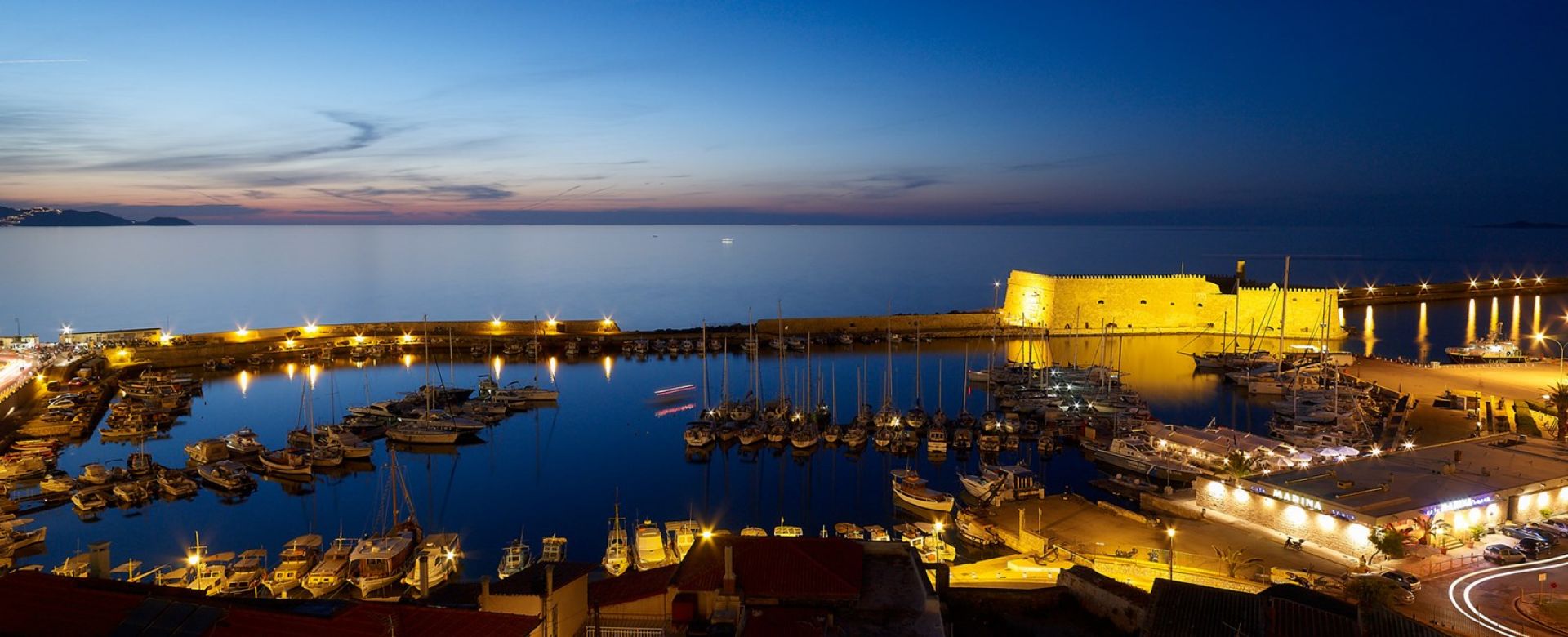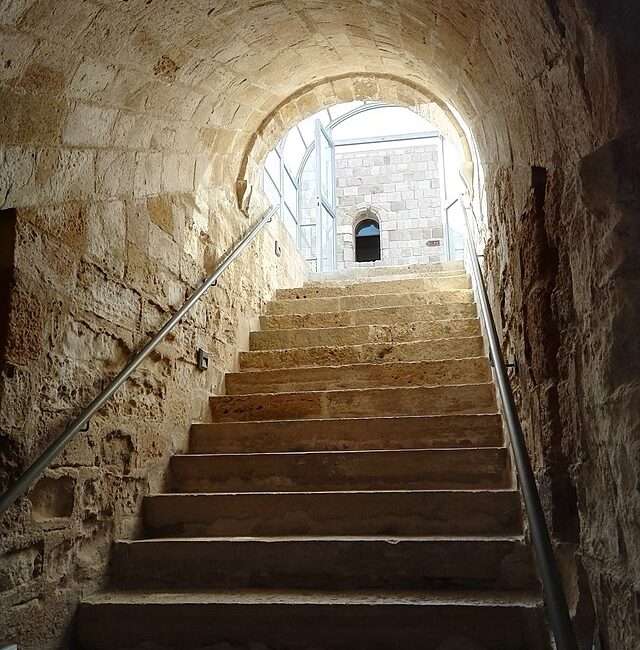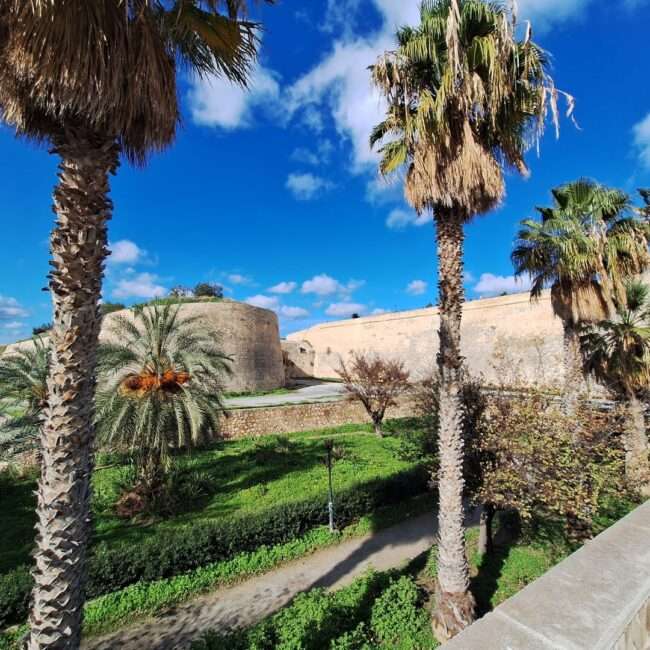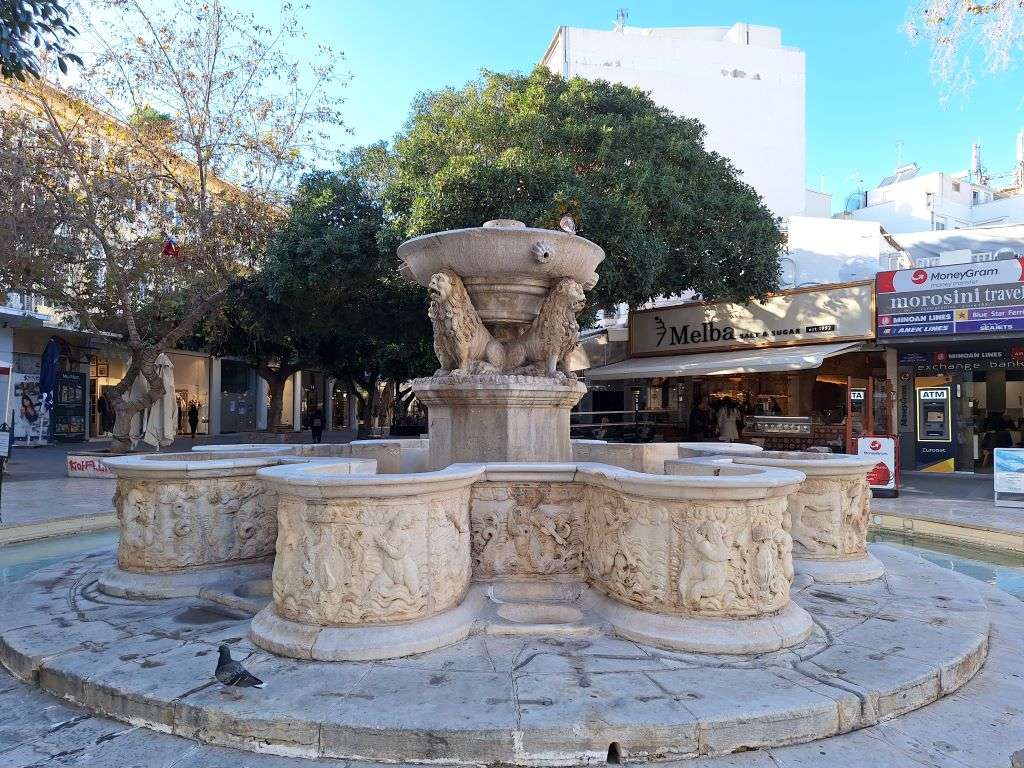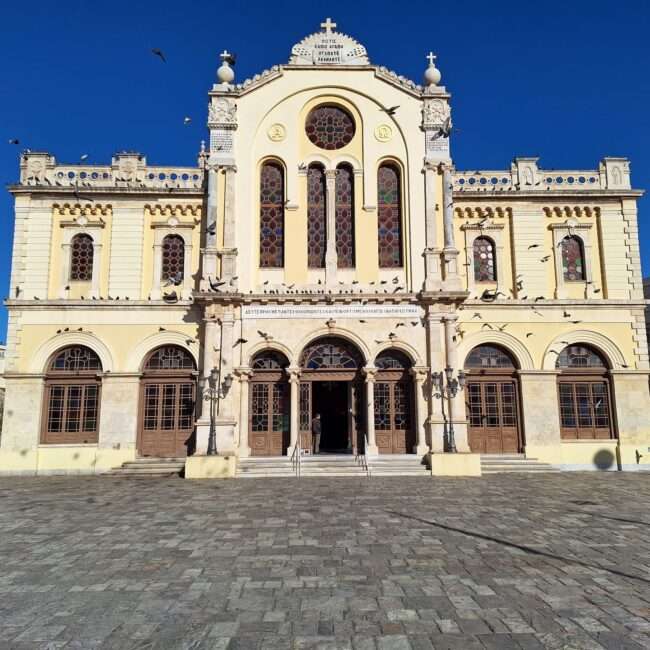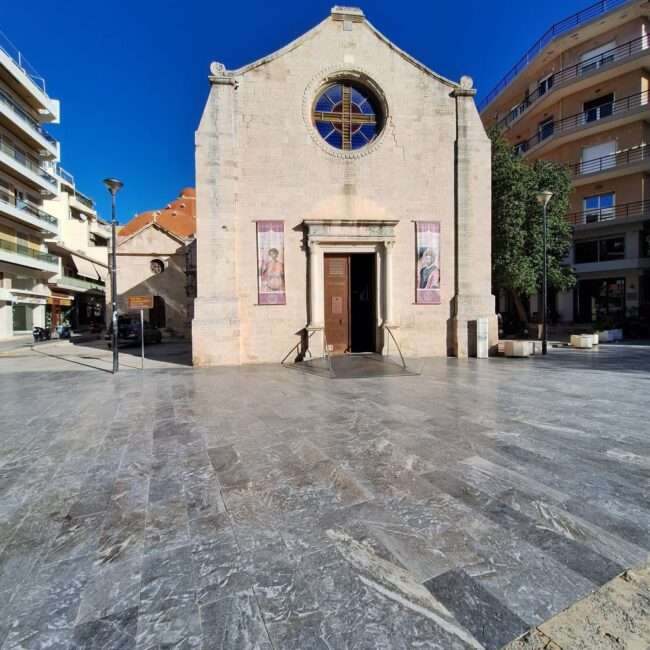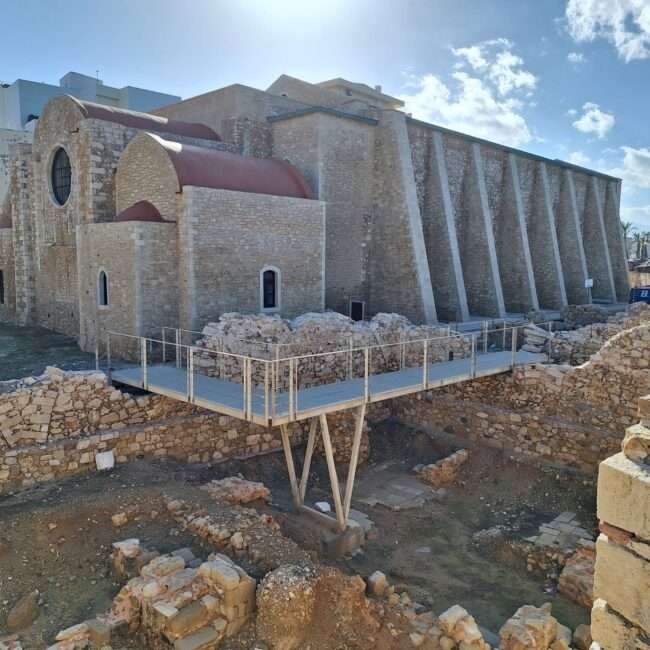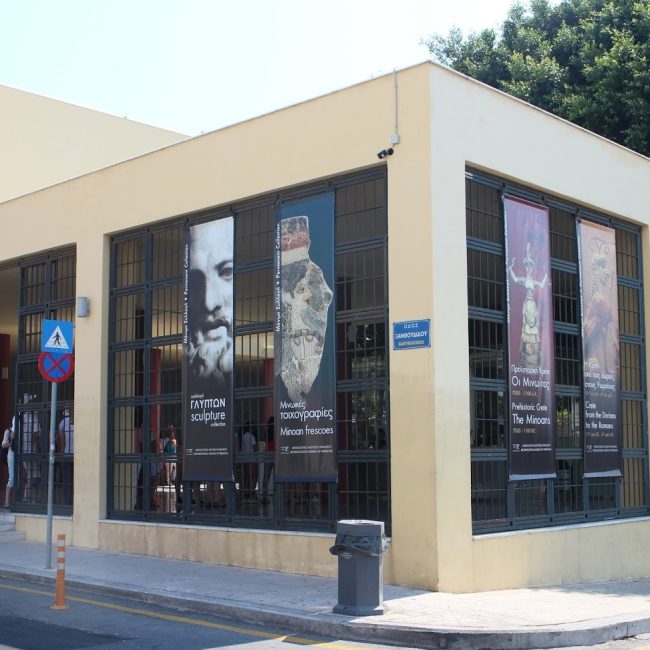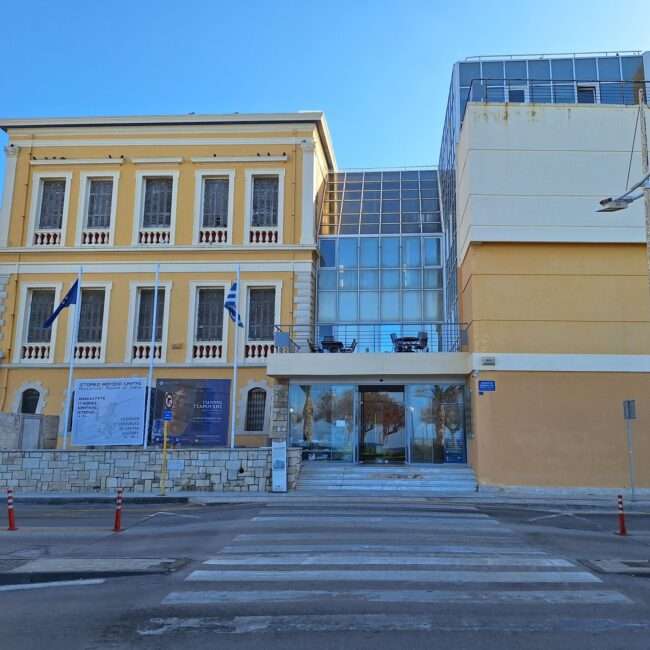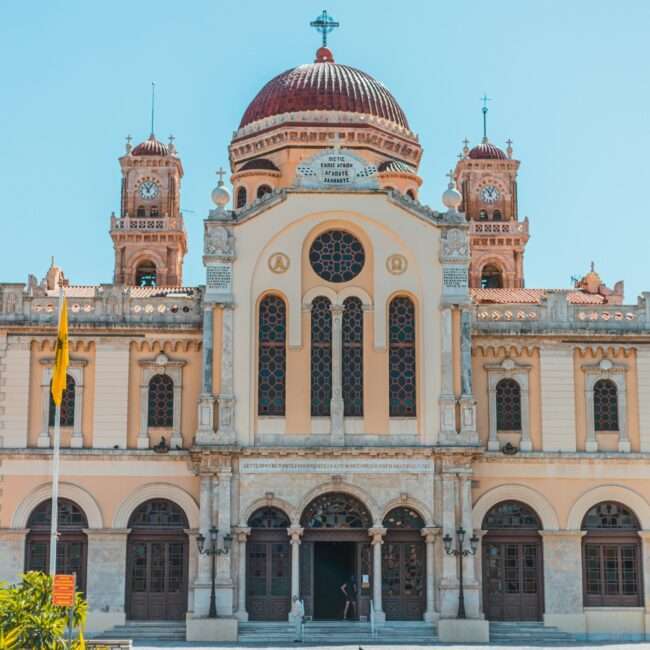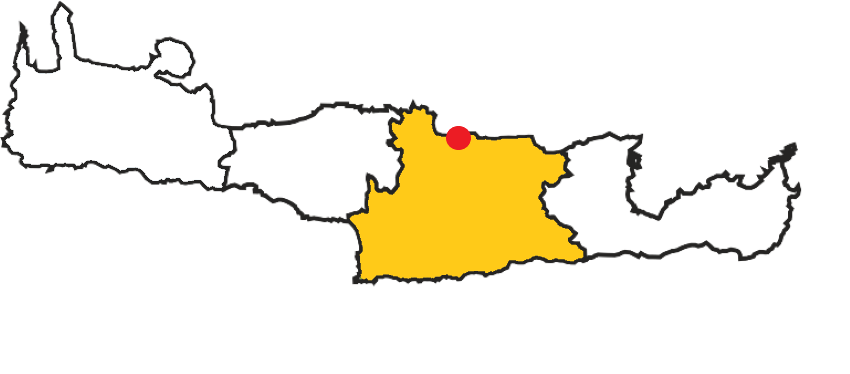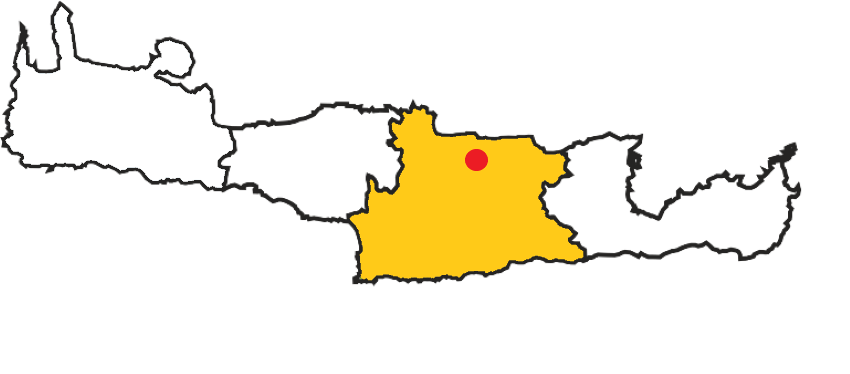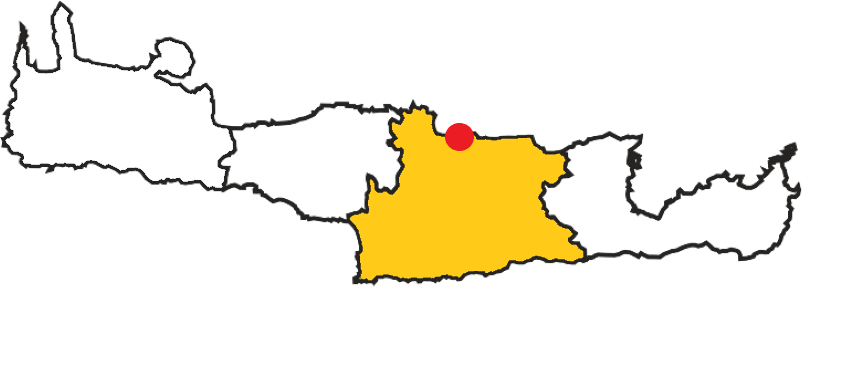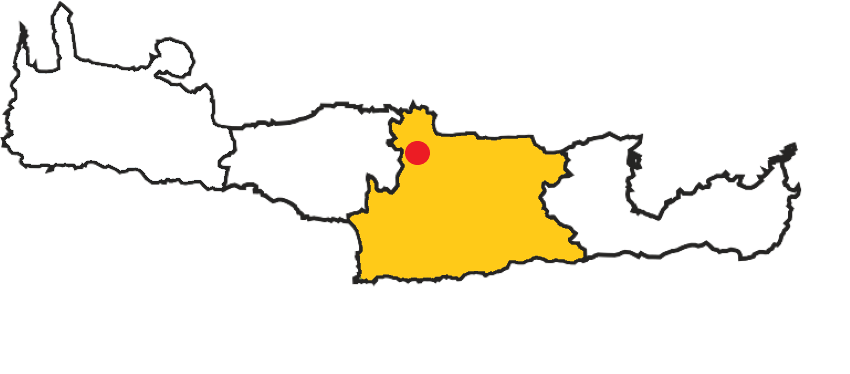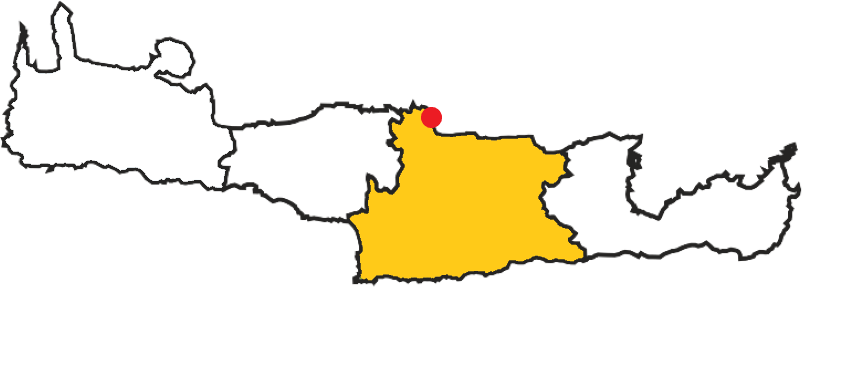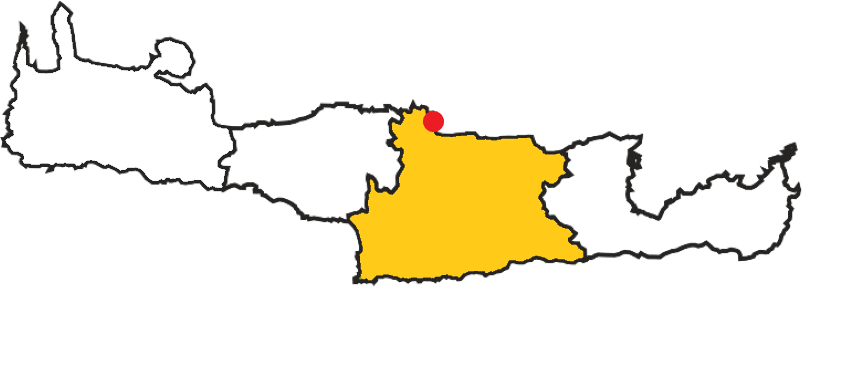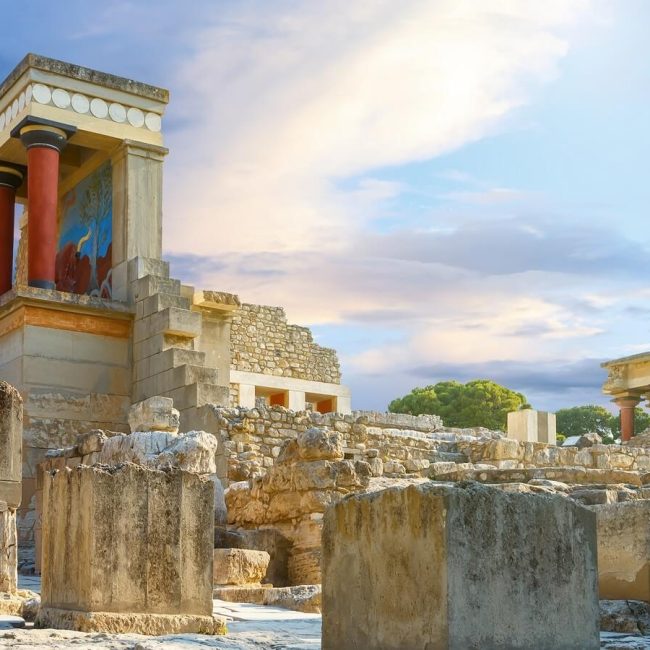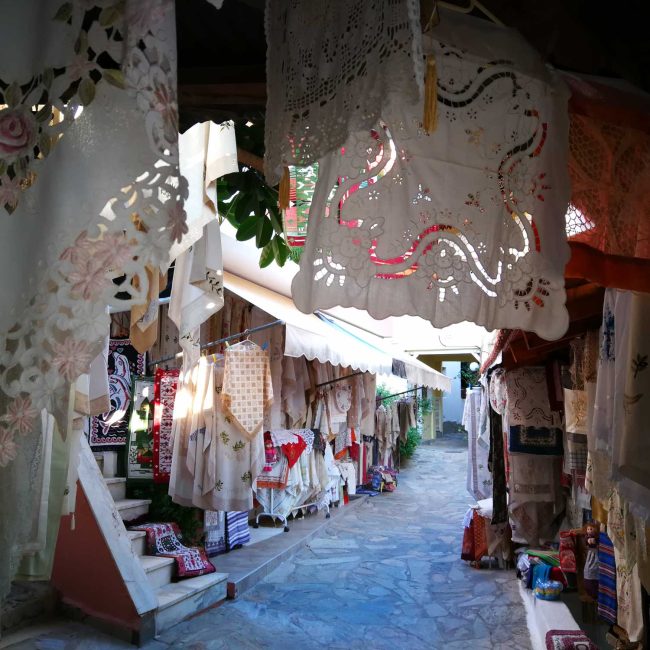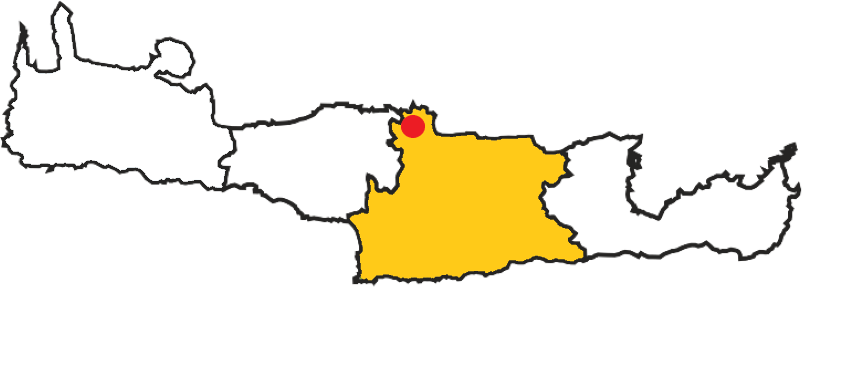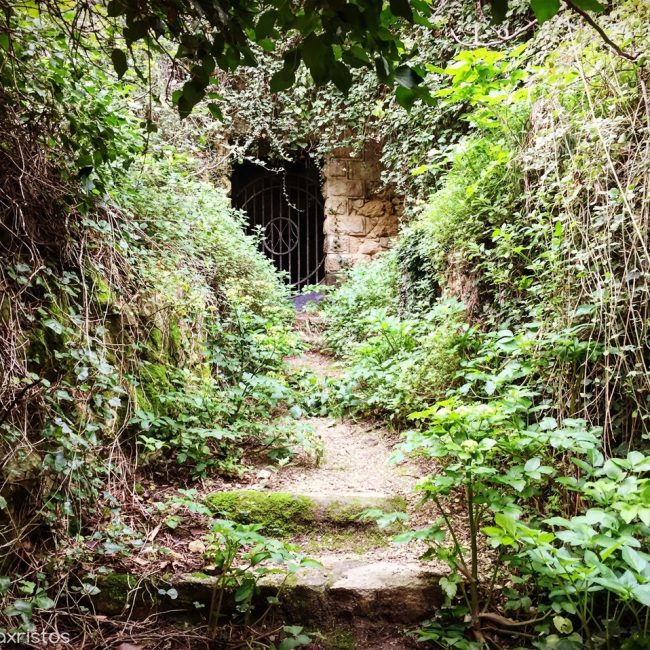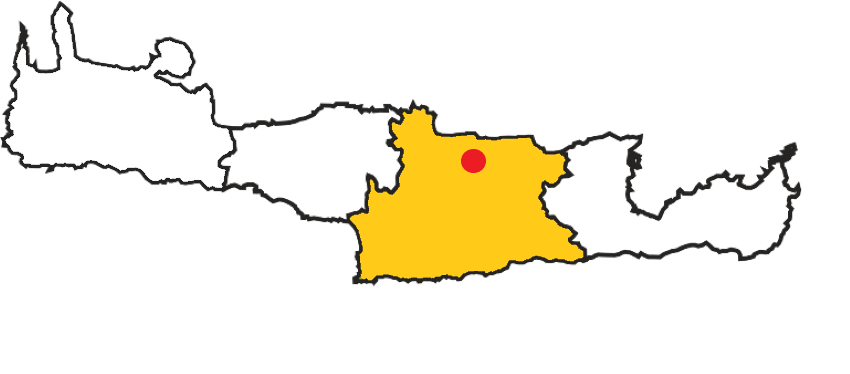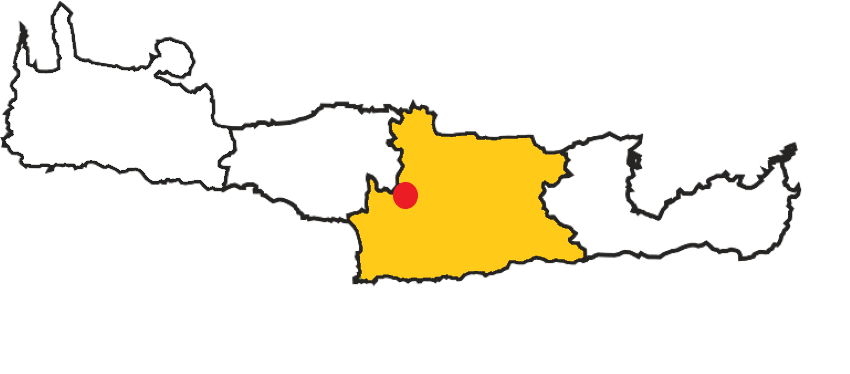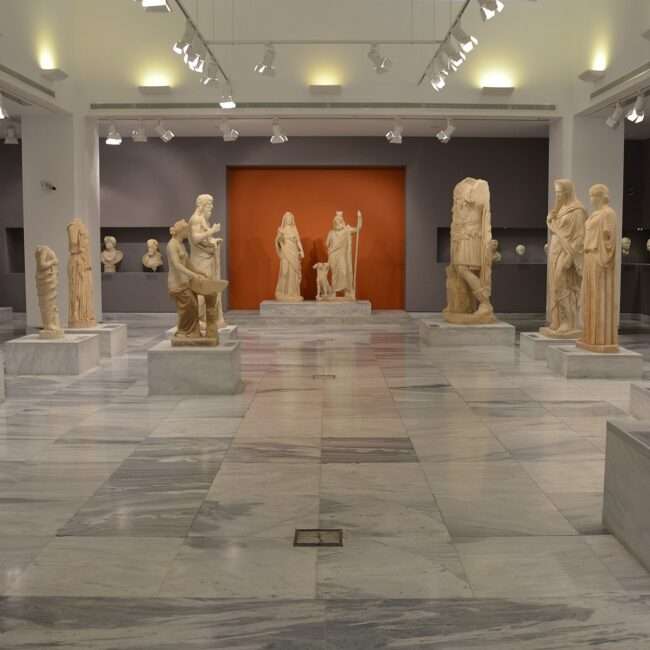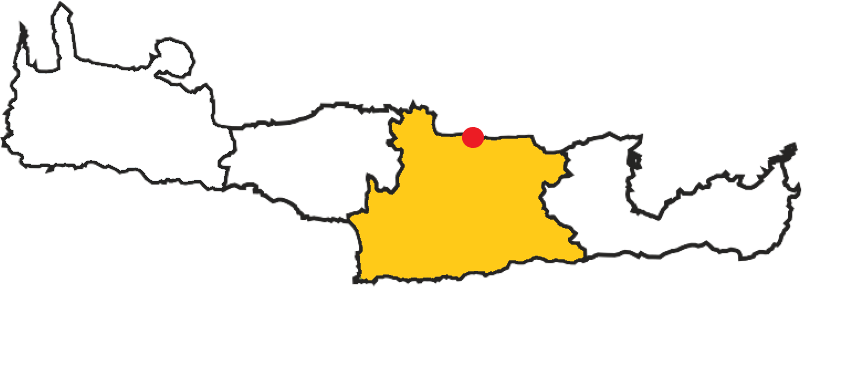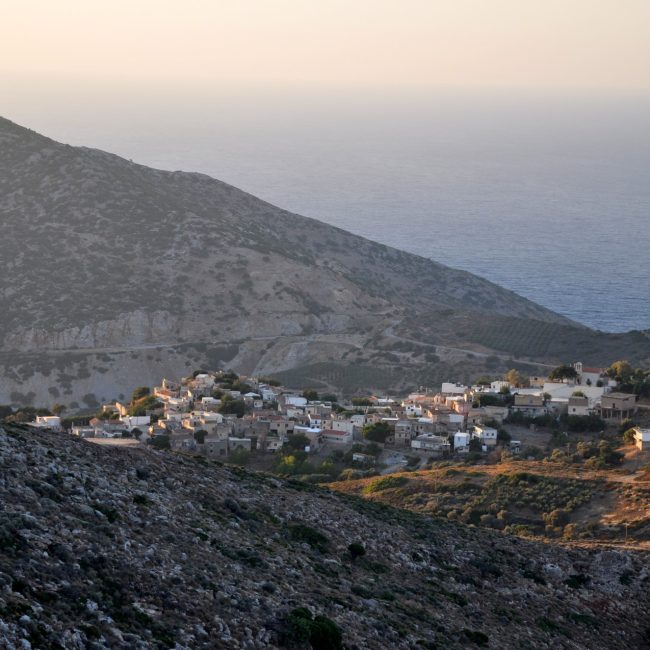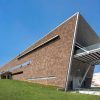Candia- Heraklion’s Old Town
Candia: Heraklion's old town and Old venetian republic's capital
Candia, Heraklion’s old town, is a historically significant district with a strong Venetian background. During Venetian control, the town was known as Candia and was an important bastion for the Republic of Venice. Candia’s historical significance is reflected in its well-preserved fortifications, which include the defensive walls and the majestic Rocca a Mare, also known as Koules. These monuments testify to the town’s strategic importance and have helped Heraklion become one of the best-defended cities in the Mediterranean. In this article, we will delve into what there is to see and do in Heraklion’s old town.
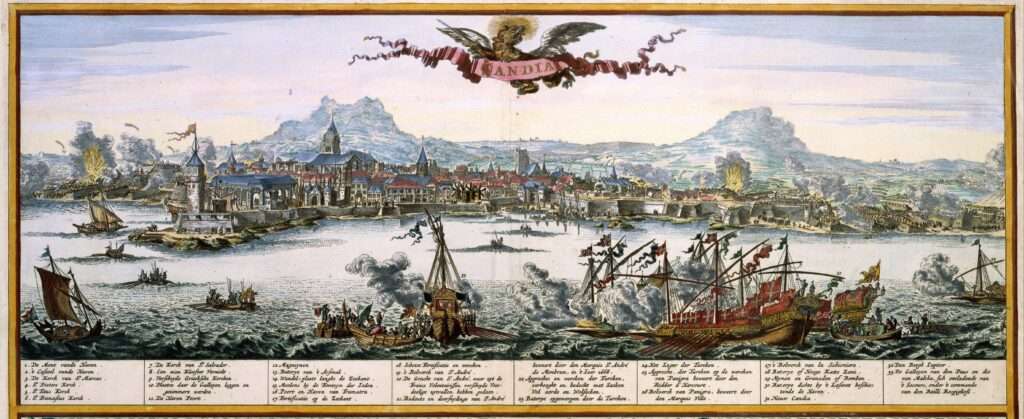
attractions
Visitors to Heraklion may explore Candia’s old town, walk around the city walls, and see the historical fortification of Rocca a Mare. Religious destinations such as Saint Minas and Saint Titus as well as museums and important landmarks, provide identity and character to Heraklion city. These attractions provide an insight into the town’s rich history and architectural legacy, making it a desirable destination for both history buffs and tourists.
candia's legacy
Rocca a Mare, also known as Koules during Ottoman occupation, is a Venetian stronghold at the entrance to old Heraklion’s port in Crete.
It is a major tourist destination and a favorite spot for Heraklion residents. The stronghold has been renovated and is now open to the public, drawing people who want to learn more about its historical and architectural significance.
The fortress’ construction began in 1525 and was completed in 1540. Half a millennium later, Koules still stands proudly on the city’s Venetian waterfront, openly unraveling its history and secrets for visitors.
The stronghold dates back to the second Byzantine period and has been used for a variety of cultural events and art displays.
Visitors can visit the hall with Venetian sculptures, the screening hall, the underwater artifacts, and more.
The ascent on Koules’ roof next to the walls provides panoramic views over Heraklion’s gulf, the Venetian port, the shipyards, and the city in general.
Timetable & Ticket
Wednesday to Monday
15th of Aprir-31st of August: 08.00-20.00
1st of September-15th of September: 08.00-19.30
16th of September-30th of September: 08.00-19.00
1st of October-15th of Octomber: 08.00-18.30
16th of October-31st of October: 08.00-18.00
1st November-31st of March: 08.30-15.30
1st of April -15th of June: 08.30-16.30
Closed
25-26th of December
1st of January
25th of March
Tuesdays
Last entrance: 20 minutes before the time the site closes.
Ticket Price: 4 Euro, Reduced 2 Euro (usually for ages 6-25 and 65+)
Additional Information
Phone number: +302810243559
Accessibility: There are facilities for the handicapped.
Website: Click Here
E-mail: efahra@culture.gr, koules.efah.gr@gmail.com
candia's defences
The Heraklion city walls, also known as the Venetian Walls of Candia, are an important historical and architectural feature in Crete.
These walls were an important defense plan and military achievement of the Republic of Venice in the 15th and 16th centuries.
The walls encircle Heraklion’s old city and reflect its importance in the Eastern Mediterranean as a transit post and naval yard of the Serenissima Republic of Venice.
The walls were built in response to the progress of fortifications and the Ottoman Empire’s expansion in the Mediterranean.
The defensive perimeter, which was triangular in design, was built in stages by notable military engineers of the time.
The walls were rebuilt following an earthquake and the Ottoman siege of 1489, demonstrating the strategic significance of the defenses.
Visitors to Heraklion can visit the well-preserved city walls, walk along the different bastions and gates, and learn about the architectural marvel’s historical significance.
On top of the Martinengo Bastion, you can find the grave of Nikos Kazantzakis, a very important figure in Crete and Greece.
The walls provide panoramic views of the old city and the surrounding countryside, as well as an insight into the region’s military past.
Historical Landmarks
In addition to the city walls and fortress, visitors can explore the old town of Candia, which is home to numerous historical buildings and landmarks.
The Morosini Fountain, also known as the Lions Fountain, is a majestic 17th-century fountain adorned with striking sculptures. The lions were the banner of the house of Morosini.
It’s located in the center of the town and is a popular attraction and a symbol of the town’s Venetian heritage.
It was installed there to bring fresh water to the city from a 15-kilometer-away aqueduct.
Another prominent construction near the Morosini Fountain is the Heraklion Loggia.
The Venetian Loggia is located on 25th August Street in the heart of the city.
It is a stunning Venetian structure that was formerly used as an aristocratic gathering place.
In modern days, it served as the Municipality building.
The Loggia is a remarkable example of Venetian architecture and a must-see for anybody interested in Heraklion’s history.
Religious destinations
Visitors can also visit the town’s numerous churches, such as the Church of Saint Titus, which was built in the 10th century and functioned as the Kingdom of Candia’s cathedral. The Church and Museum of Saint Catherine, as well as the Cathedral of Saint Minas, Heraklion’s patron, which is located near the Venetian Walls and has a spectacular bell tower. Furthermore, on the coastline of the old town, you may find the Saints Peter and Saint Paul Church. A magnificent 13th-century Dominican monastery and a well-preserved example of medieval religious architecture in the region. There are articles available if you need more information about these beautiful destinations.
Art and Museums
Art fans will be captivated by the town’s art scene. Visit the Municipal Art Gallery, which features a broad collection of paintings and sculptures by local and international artists. It is housed at the Venetian Basilica of Saint Markus.
The Heraklion Archaeological Museum is one of the most amazing museums, with some of the oldest artifacts found in Greece, and one of the most important museums in Europe. It houses representative objects from all periods of Cretan prehistory and history, spanning approximately 5,500 years from the Neolithic period to the Roman period. The museum takes pride in its one-of-a-kind Minoan collection, which contains treasures of Minoan art.
In addition to the Archaeological Museum, Heraklion boasts a Historical Museum that depicts the city’s and the island of Crete’s history. The Historical Museum, housed in a Venetian structure in the old town, houses exhibits on Heraklion’s history, including the city’s participation in the Venetian and Ottoman empires, as well as its cultural and artistic heritage.
Cultural Treasures & experiences
Candia’s allure extends beyond its ancient sites. Enjoy the lively atmosphere of the local markets, where bustling kiosks sell a variety of local food, spices, and traditional Cretan items.
Savor real Cretan cuisine at lovely tavernas and local cafes sprinkled throughout the old town to immerse yourself in the flavors of the region.
The streets: 25th of August, 1866 st. Dedalou and Dikaiosinis are the biggest commercial roads, and you can find anything you need.
Indulge in a shopping spree among the small shops and boutiques that line Candia’s streets. There’s something for everyone, from handcrafted pottery and traditional textiles to local handicrafts and souvenirs.

digital Video of candia in 1640
Modern day heraklion
Conclusion
Candia, the old town of Heraklion, is a fascinating destination that offers visitors a glimpse into the town’s rich history and architectural heritage. With its well-preserved fortifications, historical buildings, and landmarks, the town is a must-visit destination for anyone interested in history and architecture.
ADDITIONAL TIPS FOR AN ENJOYABLE VISIT TO candia, Heraklion’s old town

Destinations near candia
More options for nearby locations to plan your vacations better!



